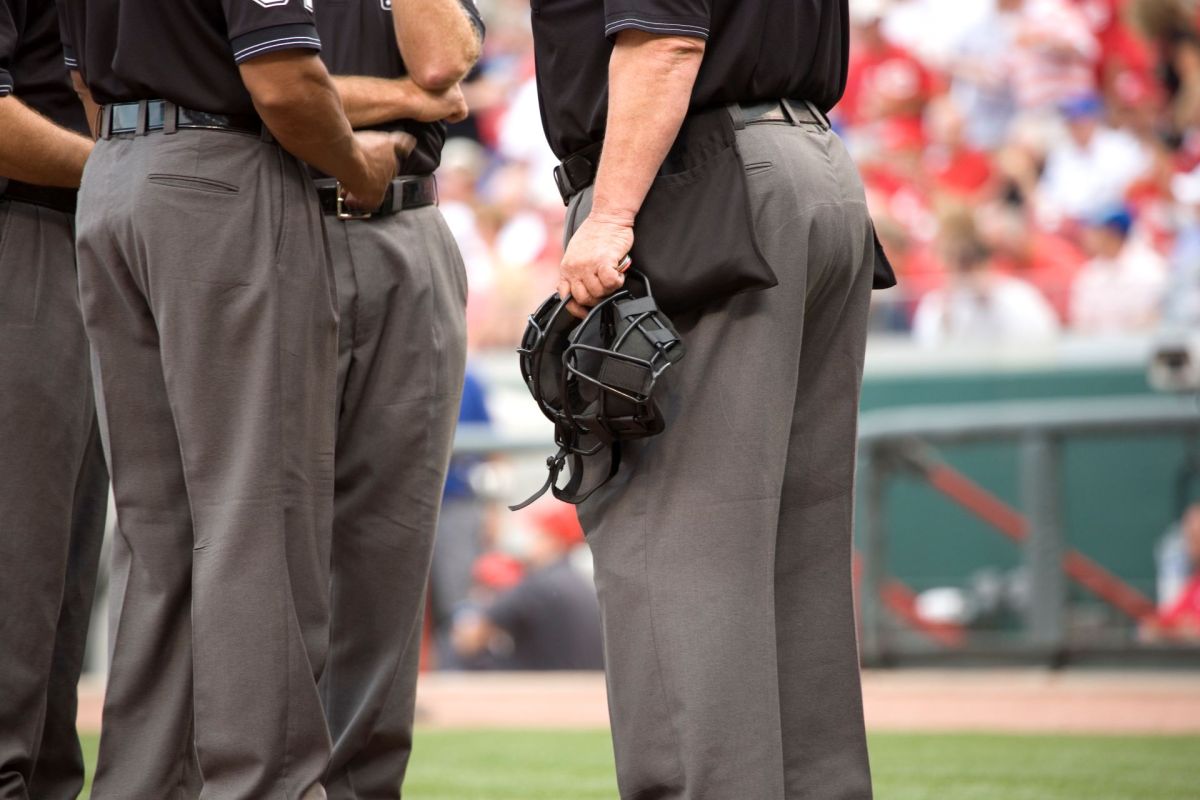Summer and baseball may go hand in hand, but an article on Phys.org warns that Major League Baseball (MLB) umpires might not be able to take the heat.
The article summarizes a study done by Eric Fesselmeyer, an associate professor of economics at Monmouth University, which shows that umpires perform their worst in extreme heat conditions.
What's happening?
The changing climate, specifically rising temperatures, is affecting America's pastime. Extreme heat waves, like other extreme weather events, are becoming more common, and extreme heat is leading to a decline in the accuracy of umpires' calls.
Fesselmeyer used the MLB's pitch-tracking technology to analyze the accuracy of calls for 18,907 games played between 2007 and 2017 and found it was at its lowest, 85.9%, when the temperature was above 95 degrees Fahrenheit.
Fesselmeyer said that "the drop in accuracy may seem small, but it is nontrivial for this high-revenue, high-stakes industry."
This isn't the only way the environment is affecting professional sports. Air pollution has been shown to negatively affect the performance of players in both MLB and the NFL.
Findings of a recent study in the International Journal of Environmental Research and Public Health prove that air quality affects not only the planet, but the human body as well.
Why is the climate's effect on athletes concerning?
The changing climate will have an effect on professional athletes and the outcomes of their teams and may lead to a loss of jobs.
Fesselmeyer said, "MLB is indeed considering robo-umps, which would have the added benefit of eliminating the effect of high temperatures on pitch calling."
Both studies raise issues with implications reaching far beyond MLB and the NFL. If rising temperatures and poor air quality are negatively affecting high-performance athletes with access to incredible health care, imagine the effects on workers with poor health and limited or no access to care.
What can I do to help the climate and my favorite team?
There are ways you can help slow the effects of rising temperatures and poor air quality.
If possible, integrate solar or wind energy at home or replace old appliances with new energy-efficient models. Take public transportation or switch to an electric vehicle.
If these options aren't possible for you, start small. Move away from single-use plastics and support businesses that promote sustainable practices.
Lastly, a big thing you can do that's 100% free is talk to your friends and family about our changing climate.
Join our free newsletter for cool news and cool tips that make it easy to help yourself while helping the planet.









